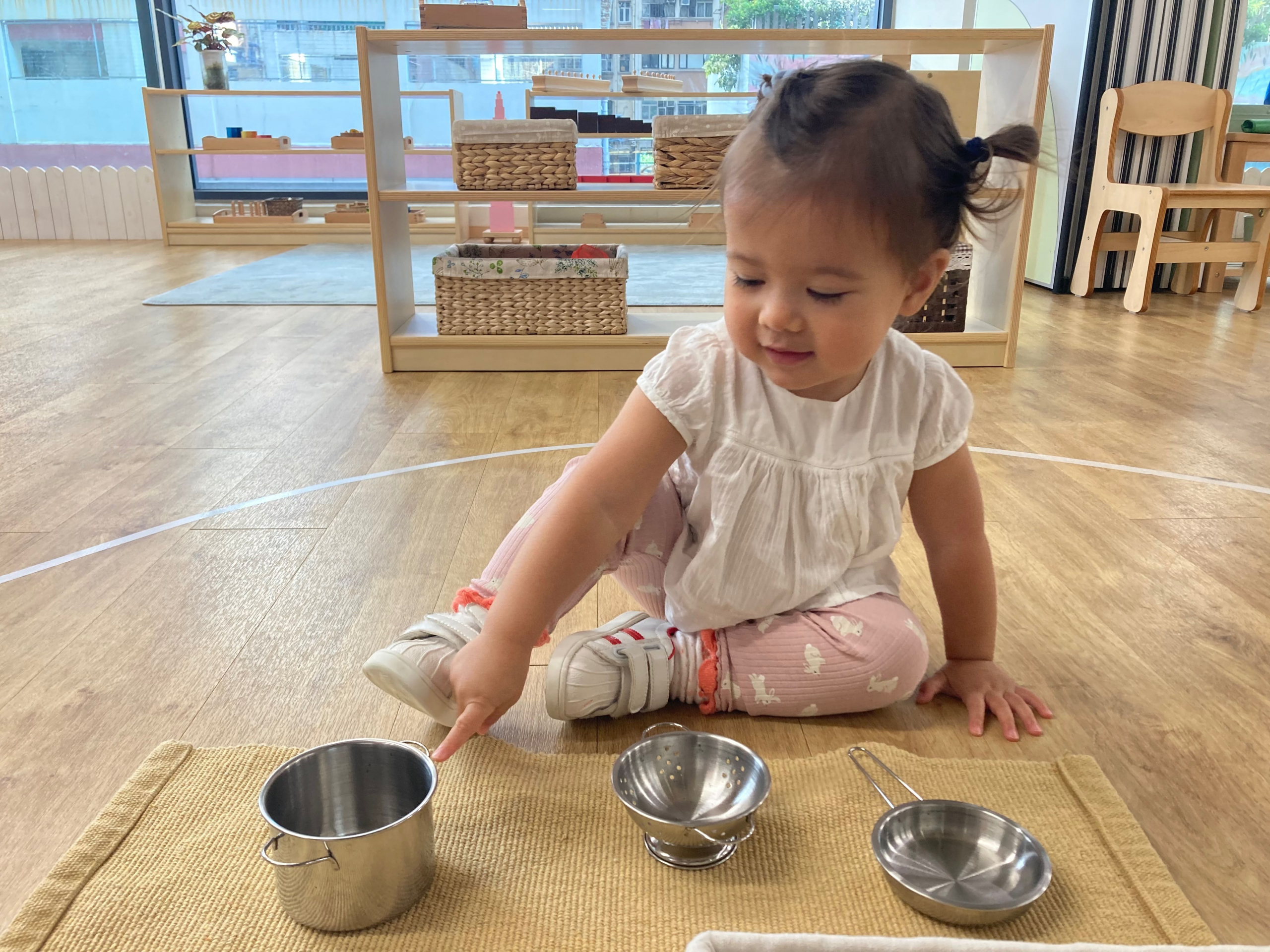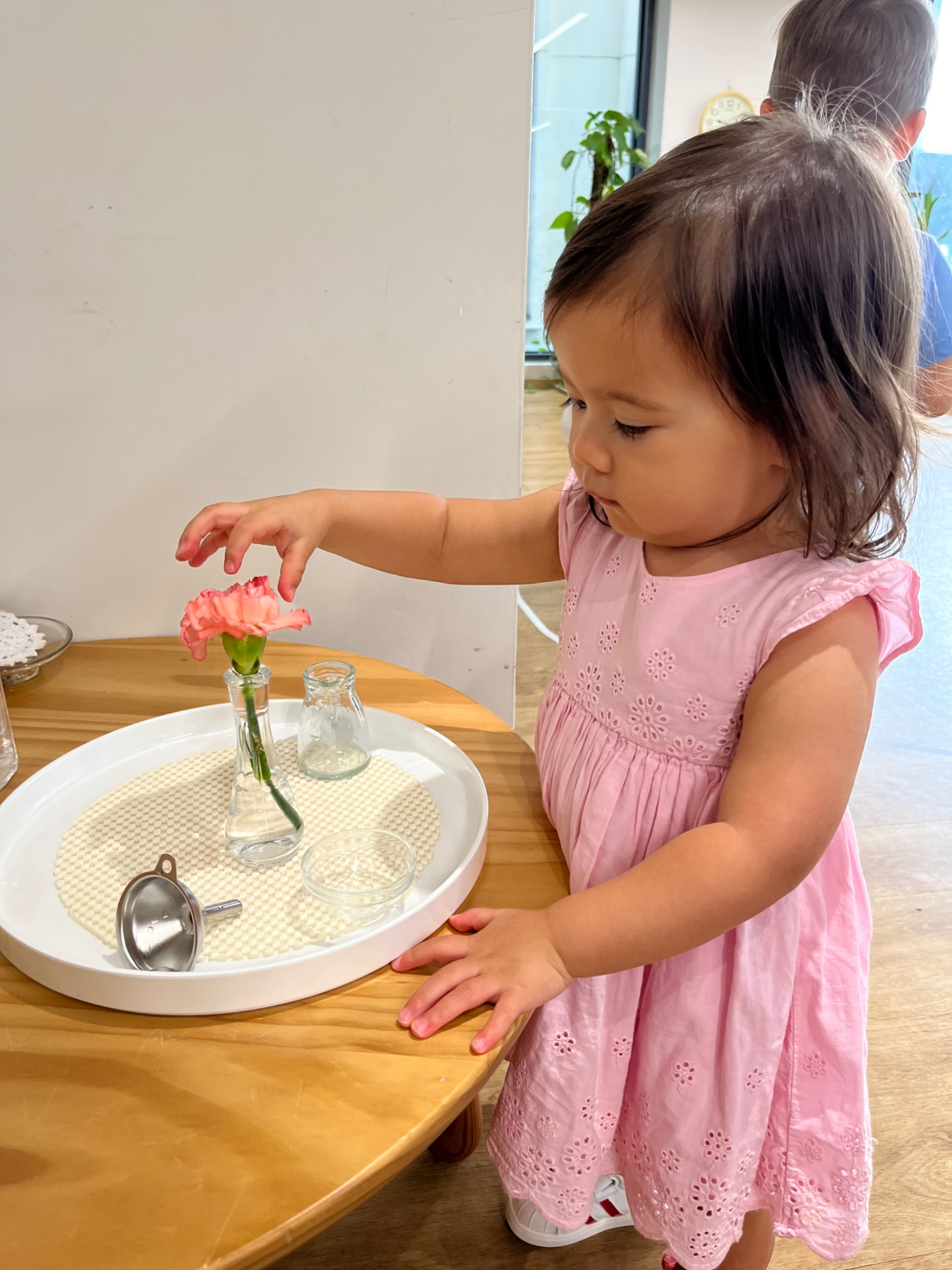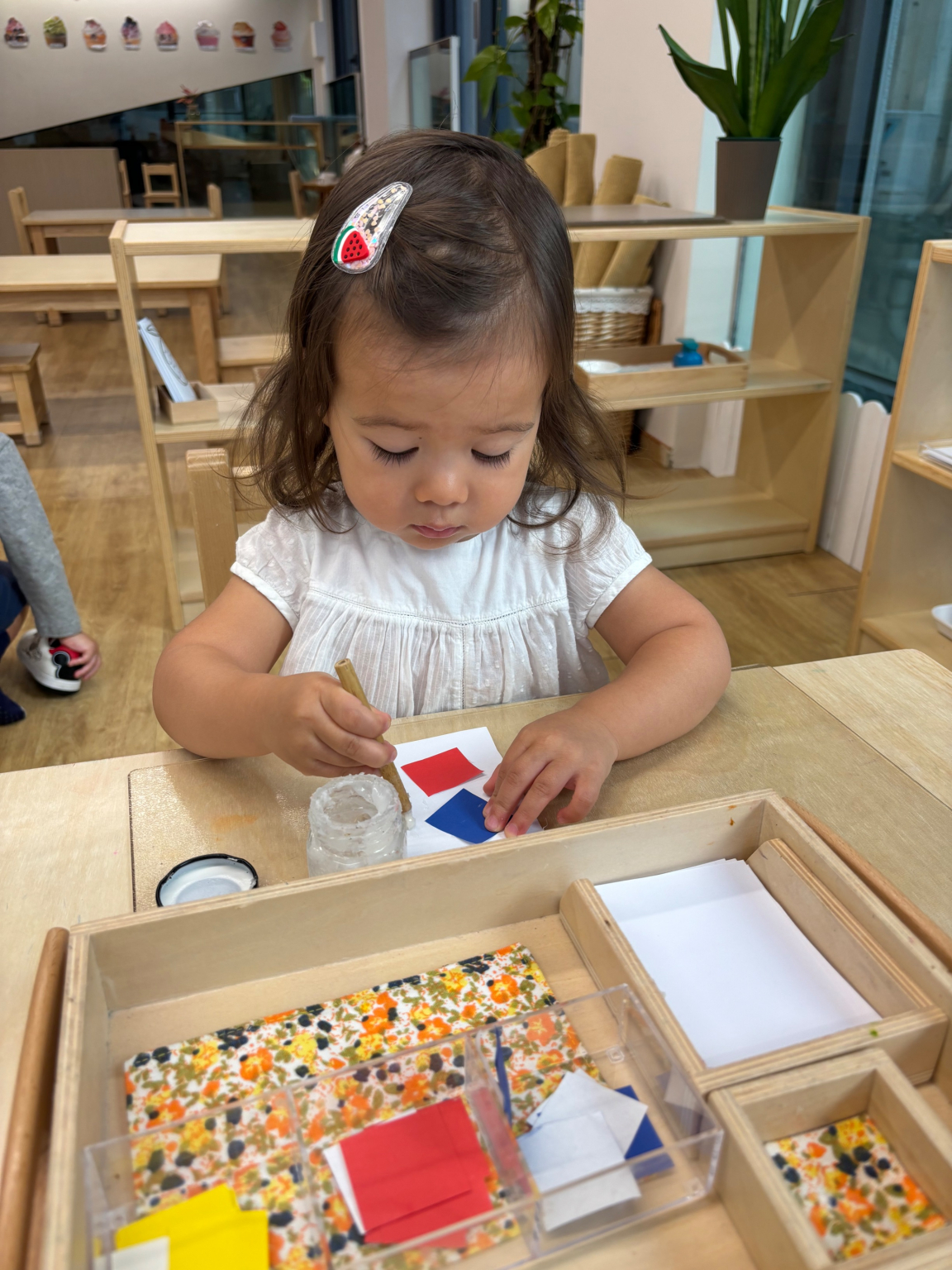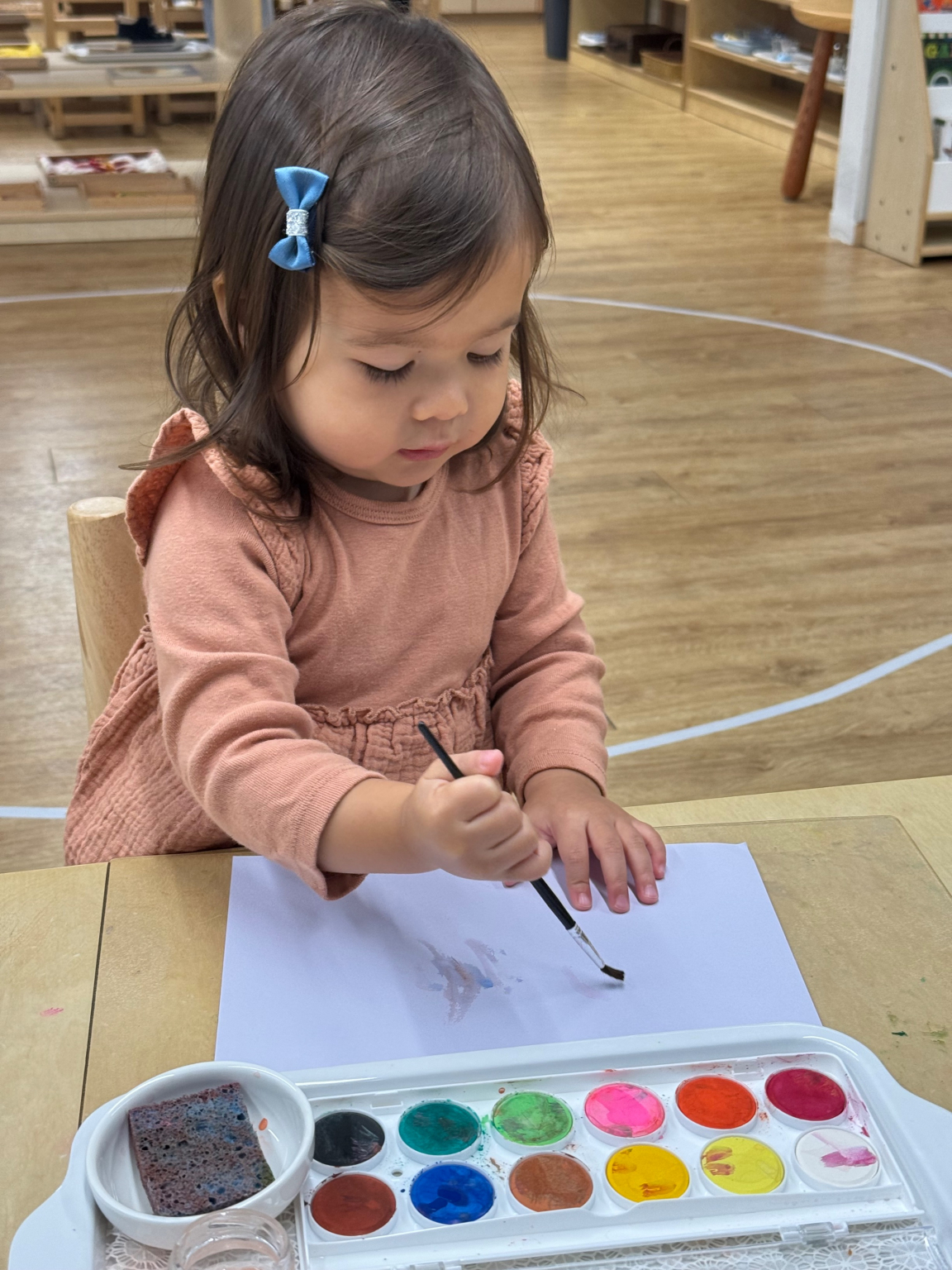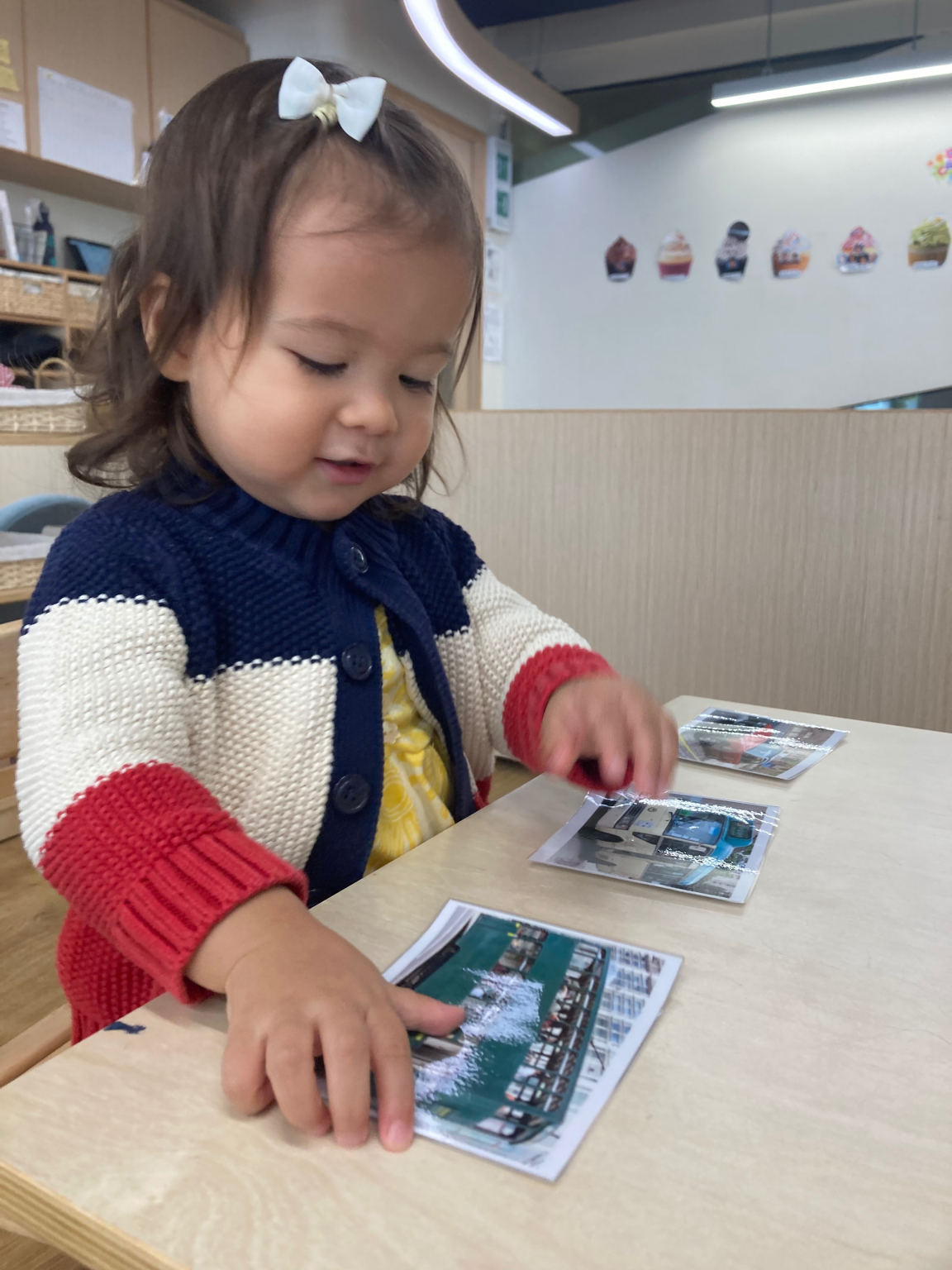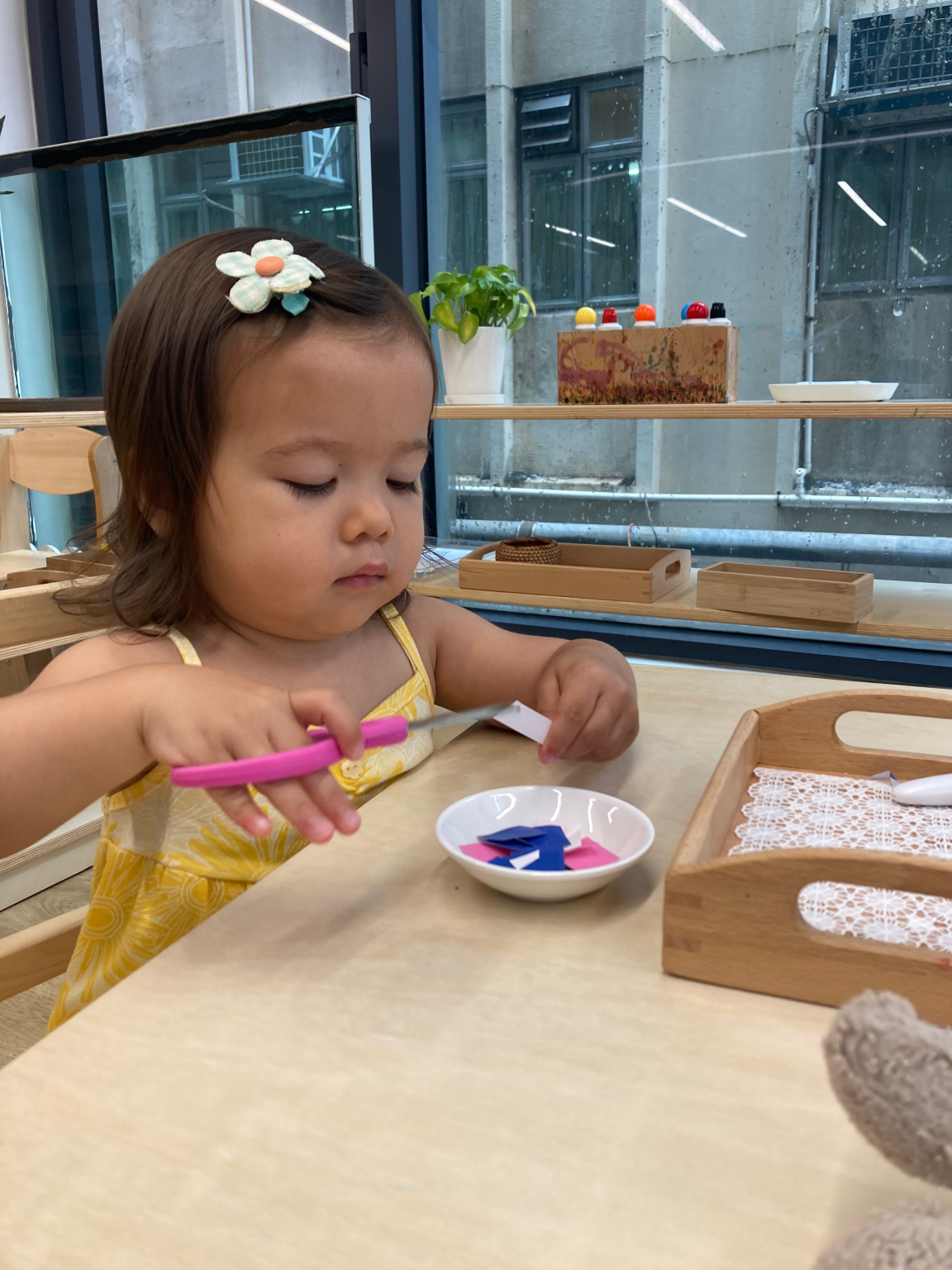toddler curriculum
Explore our rich and structured curriculum, all of which available to your child in both English and Mandarin
Practical Life
Independence
- Can choose meaningful work most of the time
- Able to show a level of independence in their work most of the time
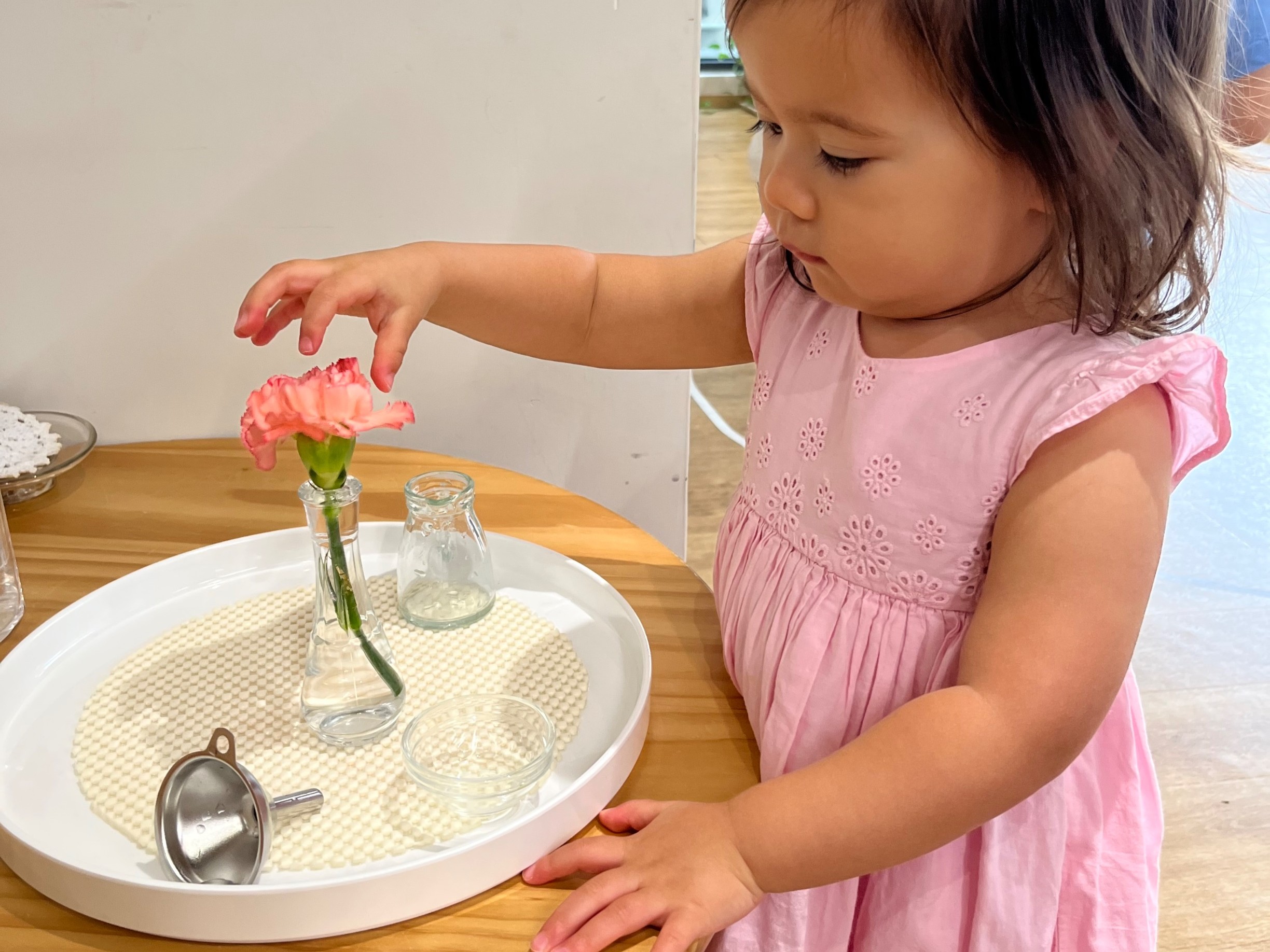
Psychosensory Motor
Hand-Eye Coordination
- Refining of fine motor control
- Uses both hands when working on an activity
- Can transfer objects through pouring, scooping, squeezing, tonging, placing, etc., with little clean up necessary
General
- Able to identify basic colors
- Develops awareness of different sensorial aspects in the world around them, such as long and short, rough and smooth, heavy and light, etc.
- Develops awareness of the natural world around them, such as early botany, weather, etc.
- Develops awareness of the animal classification and qualities of birds, fish, mammals, etc.
Geometry
- Able to name basic shapes
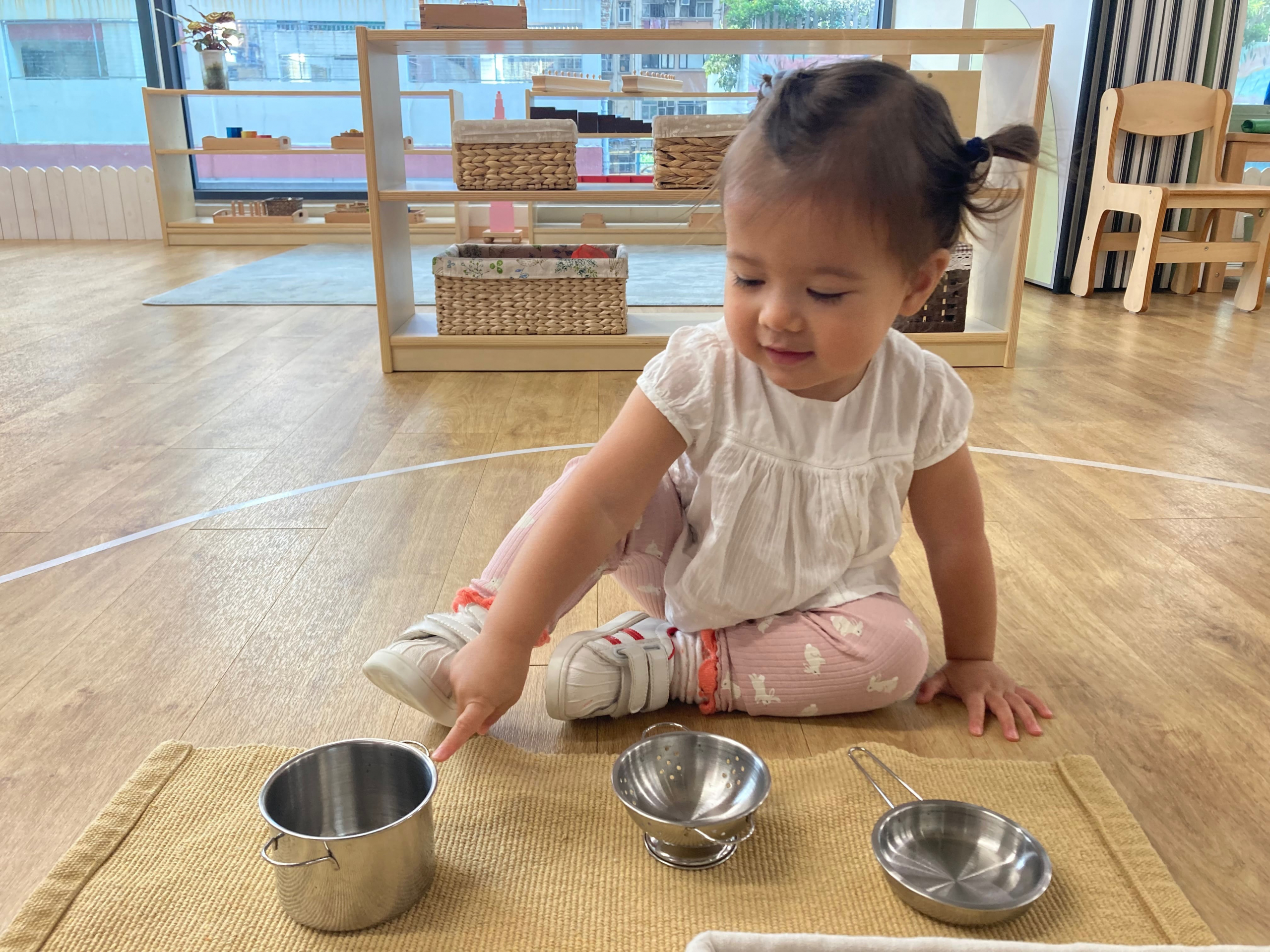
Social-Emotional Development
Work Habits
- Demonstrates curiosity and positive attitude toward work
- Perseveres at tasks
- Receptive to lessons and repeats them independently
- Purposeful in work
- Demonstrates orderly work habits
Interpersonal Skills
- Responds to redirection
- Demonstrates basic Grace and Courtesy, such as waiting one’s turn to speak
Toileting
- Becomes aware of bodily functions and begins to use the toilet independently
Mealtime Independence
- Able to feed themselves independently using utensils
- Able to help set the table and prepare food items for mealtime
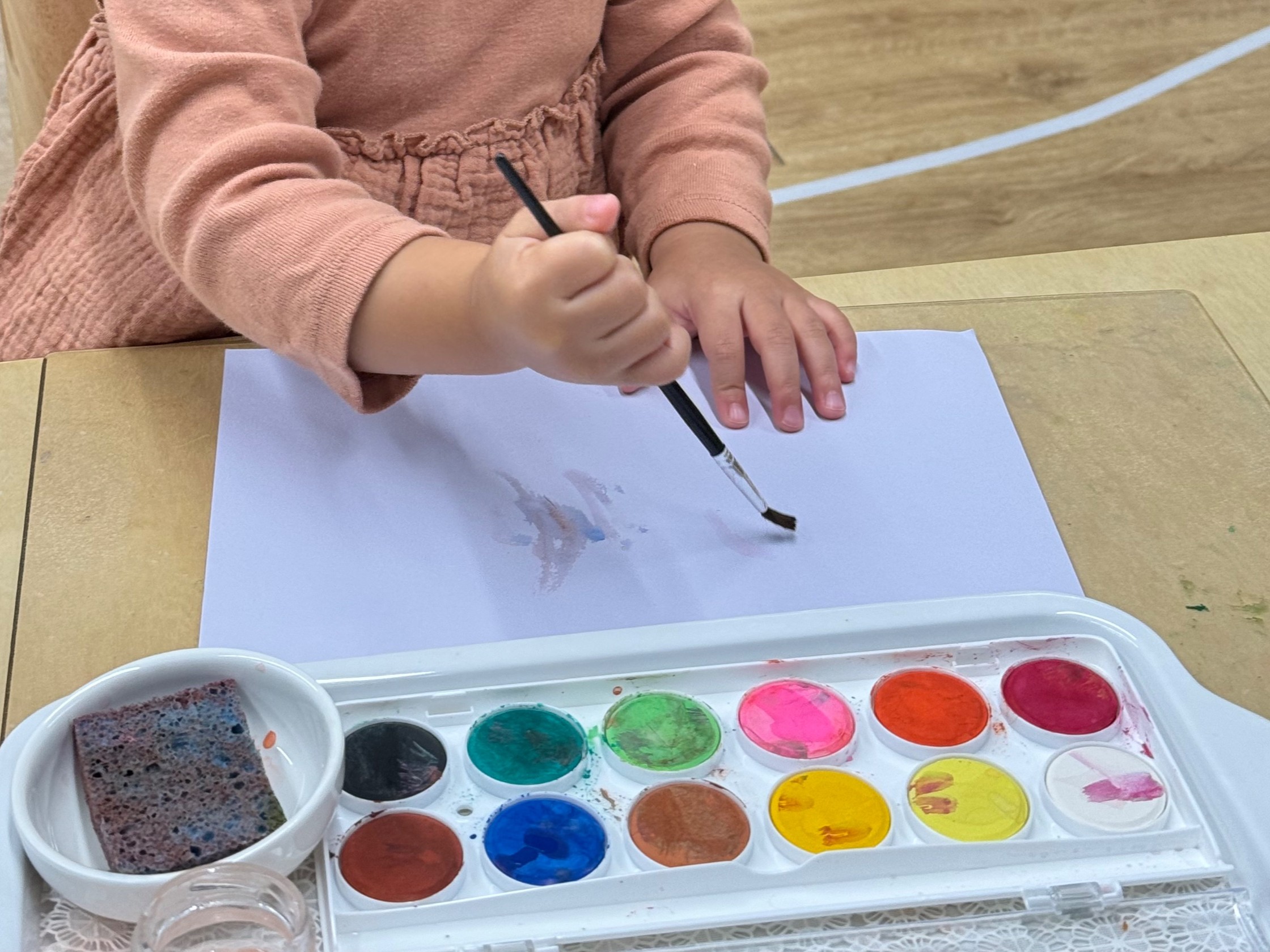
English & Mandarin Language
Speaking
- Beginning to speak in full sentences
- Communicates needs and wants verbally most of the time
- Working on enriching vocabulary
- Able to follow oral instructions most of the time
- Able to have a two-way conversation
Writing
- Begins to utilize three finger pencil grip when using writing instruments
Music
- Singing, rhythm activities
- Music appreciation
Mathematics
counting
- Begins having an awareness of numbers through books and exposure
- Begins to understand 1:1 correspondence
- Begins to count numbers using the correct sequence
- Notices patterns and repetition
- Demonstrates awareness of size and quantity
Visit nest preschool to see the difference for yourself!

